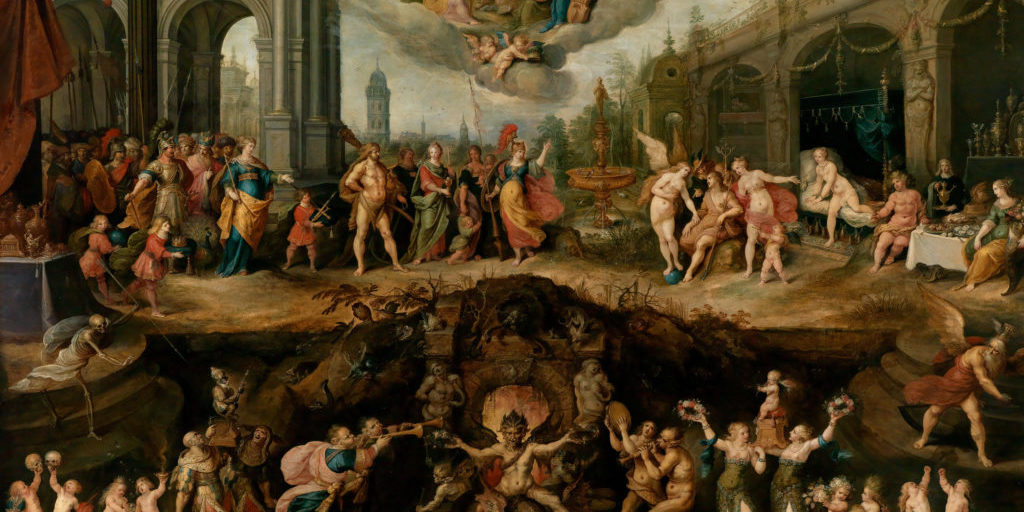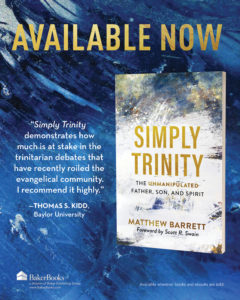
The Concept of Libertarian Free Will: Why Christians Must Reject It
 Thesis: Christians cannot fully understand the concept of libertarian free will and accept it
Thesis: Christians cannot fully understand the concept of libertarian free will and accept it
This is just an outline of a proof of this thesis. Much would need to be fleshed out. But perhaps the overall argument, which is complex, may be clarified by this brief outline.
Definition: Libertarian free will means that in a given situation an agent can just as well choose B as A.
Note 1: Other definitions of libertarian free will may be proposed, which may or may not be refuted by the following proof. Each definition requires evaluation. The above definition, however, is common and popular.
Note 2: It is possible that some may think they believe in libertarian free will, but they actually believe in a biblical concept of free will and are using the wrong term for their belief.
I. It does not exist because it cannot exist; there is no such thing as absolute freedom.
If such a thing as libertarian free will did exist, it would exist either in God or in creatures.
A. It does not exist in God because:
1. God is good
2. To be good is to act in accordance with the good
3. For God to act in accordance with the good means to act in accordance with his own nature
4. For God to act in accordance with his own nature means that he cannot act against his own nature
5. Therefore, a reason can always be given for why God acts a certain way – namely, his nature
6. If a reason can be given for a decision to act, then it could not just as well have been the opposite act
7. For God’s action to be limited to that which is consistent with his own perfect nature is not a limitation or defect, but rather a perfection.
B. It does not exist in creatures because:
1. Some created things possess no will at all, eg. inanimate objects
2. Some created things act according to instinct alone and thus possess no free will, eg. plants and animals
3. Some created things, that is angels and humans, possess a free will but not libertarian free will
4. To be a creature is to be created, that is, to receive one’s existence from outside oneself
5. To be created is to be given a specific nature with its natural telos
6. To have a telos is to have a good
7. To move toward one’s good is to be happy and healthy
8. To be free to go against one’s own good is not freedom but slavery
9. To exercise free will is to make decisions based on an orientation to one’s good as a creature
10. Therefore, to act freely is to act according to one’s nature, not against it
11. Further, to act against one’s nature moves one away from one’s good and thus should be called slavery not freedom.
II. Libertarian free will is a modern concept that rejects the biblical doctrine of creation
This concept arose historically in a period in which the metaphysics of creation was in the process of being rejected.
A. This is a modern concept
1. The concept of libertarian free will arose in the early modern period.
2. It arose within post-Reformation Reformed theology in the 17th century and took the form of Arminianism
3. It arose within post-Reformation Roman Catholic theology and took the form of Molinism
4. This concept drew on ancient Pelagian ideas and medieval semi-Pelagian ideas, but became a more pressing issue in the metaphysical context of modernity
5. The autonomous self is the central motif of modernity and arises in reaction to the fearsome God of sheer nominalism, whose character is inscrutable and whose actions are therefore unpredictable
B. This concept seems plausible in the context of the modern rejection of the metaphysics of the Great Tradition.
1. Modernity rejects realism and accepts anti-realism of one sort or another (nominalism)
2. Modernity rejects teleology and accepts mechanism of one sort or another (mechanism)
3. Modernity rejects the reality of divine action on creation and accepts materialism of one sort or another (naturalism)
4. Modernity rejects the idea of humans having a created nature implanted in them by the Creator
5. Modernity assumes that we can and must create our own natures by acts of will
6. The human will thus replaces divine creation as the source of our nature
7. The human will thus replaces divine creation as the source of our good as defined by our nature
8. Libertarian free will is viewed as having this creative function
C. Libertarian free will is a denial of creaturehood
1. The essence of the modern autonomous self is that it is uncreated or self-created
2. The modern self does not see itself as God’s creature
3. The modern self instead sees itself as a creator
4. The modern self thus exalts itself to the level of God
5. The modern self is the self that the Serpent invited Eve to become in Genesis 3
6. The modern self irrationally views itself as having libertarian free will, which not even God has
7. The modern self thus exalts itself above God
8. Libertarian free will is thus an expression of the original sin into which Adam and Eve fell in the Garden
**This post was originally published through Dr. Carter’s newsletter which can be accessed here: The Great Tradition.”

